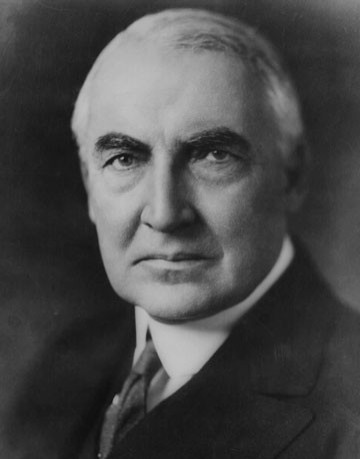Is Barack Obama Really the First Black U.S. President?

When Barack Obama was elected president of the United States in November 2008, it represented a watershed moment in the long and torturous history of African-Americans.
One-hundred and forty-five years after Abraham Lincoln’s Emancipation Proclamation freed the slaves in the South; and a little over four decades after the landmark Voting Rights Act, the nation finally elected a black person to the highest position of power.
Or, perhaps not.
The massive importation of African slaves to the New World, and subsequent social interactions over five centuries has raised questions about who is really “black.”
Obama is himself of mixed race – his father was a black African from Kenya, while his mother was a white American woman of Irish descent. Indeed, many “black” people in America are actually of mixed descent.
As a result, throughout much of U.S. history, the infamous “one-drop rule” determined who was black. Under this application, any person who had even one African ancestor (no matter how far back in the genealogy), was named “black” and, therefore, subject to the prevailing social, legal and economic restrictions imposed upon blacks.
Under this definition, Obama is obviously black – but he might not be the first chief executive in Washington to be so classified.
Consider the case of Warren G. Harding, the Republican from Ohio who became the 29th president in the early 1920s. Harding’s term was largely undistinguished and he is widely regarded as one of the most unaccomplished presidents in history. Indeed, his tenure was scarred by the ‘Teapot Dome’ scandal.
Rumors have long abounded that Harding had partial black African ancestry.
During the presidential campaign of 1920, the subject was frequently raised by Harding’s enemies and opponents.
One of them, William Estabrook Chancellor, a professor at the College of Wooster in Ohio, tried to derail Harding’s bid by accusing the nominee of being an "octoroon" – a descendant from "Negro" ancestors. A passionate Democrat, Chancellor implied that due to his mixed blood-line, Harding was unqualified to occupy the White House.
Chancellor based his “evidence” on testimony from people in Ohio who claimed Harding did indeed have black relatives.
Harding’s own father-in-law Amos Kling opposed his daughter’s marriage to him over suspicions he had black origins.
Harding himself would neither deny nor admit the accusations, saying that as far as he knew one of his ancestors could have "jumped the fence."
The “race” issue did not hurt Harding at all – he soundly thrashed the Democratic nominee James Cox by winning 60 percent of the popular vote in an astonishing landslide.
Interestingly, during his term, Harding delivered a speech in Birmingham, Alabama in which he attacked the Ku Klux Klan (then at the very height of its power) and spoke in favor of voting rights for blacks.
However, Harding did almost nothing of practical benefit to blacks during his administration.
As an addendum, the rumors of Harding’s possible black ancestry persisted long after his untimely death in 1923.
A few years ago, an elderly black woman, a schoolteacher in Michigan named Marsha Stewart, claimed she is a fifth cousin to Harding.
She told reporters: "When I grew up in the '50s, my grandparents said it's OK to talk about it in the family setting but it's not OK to talk about it outside of the family settings.”
She even wrote a book entitled "Warren Harding U.S. President 29: Death By Blackness," which explicitly detailed her familial connections to Harding.
She noted that her great-grandmother, Mary Harding Norman, and Warren Harding's father, George Tryon Harding, were first cousins.
"My mother talks about Warren Harding coming to a cousin's funeral in Michigan," Stewart said. "When he drove in everybody sort of knew who he was. He attended the funeral, and he left."
Other presidents, including Thomas Jefferson, Andrew Jackson and Calvin Coolidge were also rumored to have black ancestry.
But perhaps the most interesting rumors concern Abraham Lincoln himself, the man who freed the slaves.
Lincoln’s relatively dark complexion and coarse hair raised suspicions during his life – especially from Southern politicians who strongly opposed his views on slavery. Some of his opponents even sneeringly nicknamed him "Abraham Africanus the First.”
William Herndon, Lincoln's law partner, apparently wrote a book entitled "The Hidden Lincoln," which alleged that Thomas Lincoln could not have been Abraham's biological father because he became sterile from childhood mumps.
Some claimed Lincoln’s true father was black; while others described his mother as “Ethiopian”
However, there was never any real evidence and Lincoln apparently never addressed the topic himself.
© Copyright IBTimes 2025. All rights reserved.





















